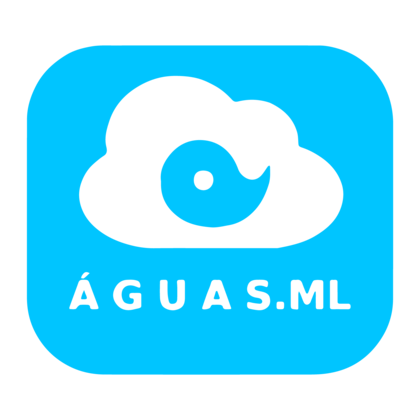Dance and entertainment are part of the live transmission of the Communit Warao Radio. Photo: Felipe Irnaldo/UNHCR
“Good morning! We are now starting another edition of Yakera Jokonae radio here at the Carlos Gomes shelter”, announces the indigenous Alcioni Torres through a stereo set in the courtyard of this new shelter for Venezuelan indigenous population from the Warao ethnic group in the city of Manaus. Living in the Amazonian capital with his family, Alcione draws the shelter residents’ attention with his powerful voice.
He is one of the mobilizers who have participated since April in the broadcasts of community radio sessions at the Carlos Gomes and Nininberg Guerra shelters, in Manaus, mobilizing adults and young people in the production of participatory content to disseminate information, news and entertainment.
This is one of the strategies of UNHCR (UN Refugee Agency) to strengthen the protection of Venezuelan indigenous populations in the Northern region of the country. In partnership with the Mana Institute and the Municipal Secretariat of Women Social Assistance and Citizenship of Manaus (SEMASC), community radio stations in both shelters share reliable and updated information about COVID-19. The action is also supported by Doctors without Borders.
It is estimated that about four thousand Venezuelan indigenous Warao people live in Brazil, of which 600 are in Manaus. In the last weeks, 534 refugees have recently been relocated to safer areas in the city, with the support of local authorities. The others remain in the shelters where they were already living, where conditions are adequate.
Alcioni, like many of his friends and relatives, speaks the Warao language and communicates in Spanish. Without mastering Portuguese, this group suffers from a language barrier and has difficulty accessing updates about the pandemic, while facing the additional challenge of having to self-isolate in a situation of displacement away from their homes.
By participating in the project, Alcioni and the community found motivation to stay informed, integrate the shelter community and share the common experience of having been forced to leave their homes and communities to escape hunger and violence.
“I like to be on the radio because we do new things. The community participates, and we learn that in isolation we can also laugh and do what we love. This inspires us to make plans for the future,” says the Yakera Jokonoto radio speaker.
The novel coronavirus pandemic is the main topic of the radio programme, which reinforces preventive measures published by the World Health Organization (WHO) and reports the number of people infected and deaths. However, there is also space for music and other topics, including football and current events. “I always use sports to socialize and as an ice breaker to connect with others, and make them feel better. In the end, we are helping each other”, reinforces Alcioni.
The work starts days in advance. About ten people make up the radio team of each shelter, which is divided into groups and discuss topics of interest to the community. At the Nininberg Guerra shelter, the team is led by Eudismari Mariano, a 30 year-old Warao community member.
“I like to participate in the whole process, talking about sports, medicine, culture… all of this helps to share things that interest us with many people in the shelter,” says the Venezuelan who has been living in Brazil for 1 year and 7 months.
The programs, which take place weekly, are presented live and have the participation of special guests, including doctors and humanitarian workers. It is not uncommon for listeners to ask questions, comment and even dance and sing their favorite songs. Even news about celebrities, including those with COVID-19, appears in the program’s script.
“Information is our greatest prevention tool, and no one is better than the community themselves to find out the best way to communicate it”, highlights UNHCR’s Protection Assistant in Manaus, Juliana Serra.
“Nothing is better than engaging the community in the prevention efforts. As a result, we have the community involved and informed, developing communication skills and knowledge. This is a space where they also share their concerns and what they are experiencing as refugees in the midst of the pandemic”, she says.
For Adriana Lira, 26, an indigenous leader who passes on information about the routine and duties of those welcomed at Carlos Gomes shelter, the radio has become a very useful tool. “Everyone liked the radio at the shelter, because it is not just an opportunity to listen to music, we can also share information about the routine of the shelter, what to do and what not to do, it ends up being very cool to pass information about the government’s emergency aid benefit, what worked and what didn’t,” she highlights.
This action is supported by donors such as the Bureau of Population, Refugees, and Migration (PRM) within the United States Department of State, which allows UNHCR greater flexibility in the use of its resources through unearmarked contributions, enabling carrying out different projects aimed at protecting the refugee population in a vulnerable situation.
Emergency within the emergency – With the arrival of the pandemic, UNHCR has intensified the emergency response to the displaced Venezuelan population in order to guarantee better hygiene and sanitation conditions, accommodation and access to information. In Manaus, approximately 600 Warao are being supported with various activities to prevent and respond to COVID-19, including relocation to safer spaces supported by city authorities, where they are fed three times a day, in addition to information sessions on coronavirus and prevention measures. UNHCR provided mattresses, beds, hygiene and cleaning kits and technical guidance to improve the infrastructure of the safe shelter spaces.
Fonte
O post “Transmissions of kindness: community radio engages indigenous refugees and migrants in Manaus” foi publicado em 15th May 2020 e pode ser visto originalmente diretamente na fonte ONU Brasil

